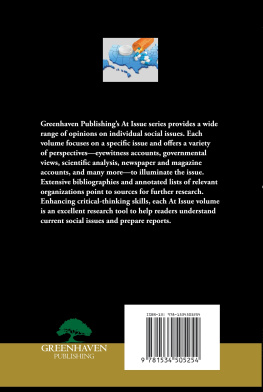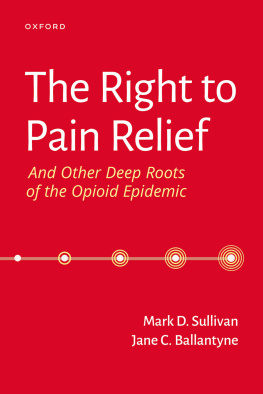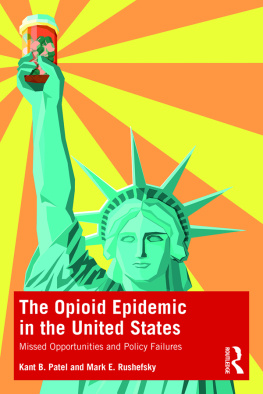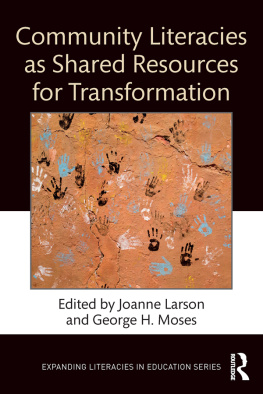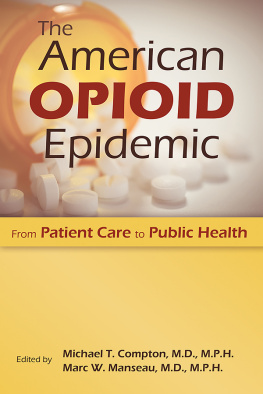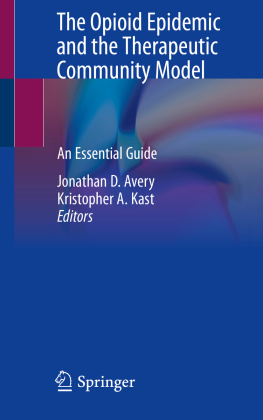Participatory Community Inquiry in the Opioid Epidemic
This book explores a research project focused on finding a community-level response to the opioid epidemic. Grounded in communication ethics, appreciative inquiry, and action research, this book contends that the opioid epidemic in the United States is as much a social disease as it is a pharmaceutical one, arising from a lack of social connection and the communal literacy Americans need to deal with the challenges they face together.
Asking how Americans can rediscover their social connection to rebuild vibrant, sustainable communities, the author proposes and tests an approach called Participatory Community Inquiry (PCI), which helps groups acknowledge the social goods that unite them, design practices that protect and promote those goods, and undertake actions that can support their common lives.
Shaping the conversation on how Americans may rediscover and rebuild the community they have lost, this book will be a key resource for researchers, practitioners, and students in communication studies, sociology, and action research interested in social ethics and community development and organizing.
Craig T. Maier is Associate Professor in the Department of Communication & Rhetorical Studies at Duquesne University, USA.
Routledge Focus on Communication Studies
Strategic Communication and Deformative Transparency
Persuasion in Politics, Propaganda, and Public Health
Isaac Nahon-Serfaty
Globalism and Gendering Cancer
Tracking the Trope of Oncogenic Women from the US to Kenya
Miriam OKane Mara
Maatian Ethics in a Communication Context
Melba Vlez Ortiz
Enhancing Intercultural Communication in Organizations
Insights From Project Advisers
Edited by Roos Beerkens, Emmanuelle Le Pichon, Roselinde Supheert, Jan D. ten Thije
Communicating Aggression in a Megamedia World
Beata Sierocka
Multigenerational Communication in Organizations
Insights from the Workplace
Michael G. Strawser, Stephanie A. Smith and Bridget Rubenking
Participatory Community Inquiry in the Opioid Epidemic
A New Approach for Communities in Crisis
Craig T. Maier
For more information about this series, please visit: https://www.routledge.com
First published 2022
by Routledge
605 Third Avenue, New York, NY 10158
and by Routledge
2 Park Square, Milton Park, Abingdon, Oxon, OX14 4RN
Routledge is an imprint of the Taylor & Francis Group, an informa business
2022 Craig T. Maier
The right of Craig T. Maier to be identified as author of this work has been asserted in accordance with sections 77 and 78 of the Copyright, Designs and Patents Act 1988.
All rights reserved. No part of this book may be reprinted or reproduced or utilised in any form or by any electronic, mechanical, or other means, now known or hereafter invented, including photocopying and recording, or in any information storage or retrieval system, without permission in writing from the publishers.
Trademark notice: Product or corporate names may be trademarks or registered trademarks, and are used only for identification and explanation without intent to infringe.
Library of Congress Cataloging-in-Publication Data
A catalog record for this title has been requested
ISBN: 9781032152332 (hbk)
ISBN: 9781032153315 (pbk)
ISBN: 9781003243663 (ebk)
DOI: 10.4324/9781003243663
Typeset in Times New Roman
by codeMantra
Figures
- 5.1a Final drawing from Group A
- 5.1b Final drawing from Group B
Tables
- 5.1 Initial list of social goods from session one
- 5.2a Social goods, definitions, and visions for Group A
- 5.2b Social goods, definitions, and visions for Group B
- 5.3a Results of the Rose-Bud-Thorn exercise (frequency of responses in parentheses)
- 5.3b Tentative list of practices for Group A
- 5.3c Tentative list of practices for Group B
- 5.4a Final list of practices for Group A
- 5.4b Final list of practices for Group B
- 5.5a Group As logic model
- 5.5b Group Bs logic model
Acknowledgments
This project required the assistance of a number of people affiliated with the Department of Communication and Rhetorical Studies at Duquesne University in Pittsburgh, Pennsylvania. G. Blake Plavchak and Katherine Rogers formed the core of the research team. Dr. Hannah Karolak, Dr. Emmalee Torisk, and Austin Hestdalen served as facilitators of the inquiry groups. Torisk, Rogers, and Kelly Errera also helped prepare this manuscript for publication. In addition, several students in my Fall 2019 research methods course helped test and refine the framework and provided vital support during the sessions as notetakers and organizers: Anna Bonanno, Chance Broughton, Preston Carmack, Lindsey Laverty, Dominic Lea, Abbey McCann, and Kristen Migliozzi.
Furthermore, I thank Jessica Mann, Angelle Pryor, and Deanna Fracul of Duquesne Universitys Center for Community-Engaged Teaching and Research, who provided a mini-grant funding crucial logistical support for the inquiry groups.
I am also deeply appreciative of the work of Suzanne Richardson and Tanushree Baijal of Routledge, who were essential in shepherding this project toward publication amidst the stresses and turmoil of the COVID-19 pandemic.
Finally, I am grateful for the support of my wife, Gabriele Maier, and my sons Max and Noah, without whom this project would not have been possible.
Introduction Rediscovering Each Other in a Time of Crisis
DOI: 10.4324/9781003243663-1
Today, communities across the United States are fighting an epidemic inside of a pandemic in a country without a society. Opioid use disorder continues to be a public health crisis with no clear end in sight. But while many communities have begun to turn the tide, the events of 2020 have revealed alarming deficits in the things these communities need to succeed in their fight: supportive relationships, social trust, institutional stability, economic opportunity, and hope for the future. The institutional response in the United States to the coronavirus outbreak that arose in the early weeks of 2020 was marked by an official death toll that (as of early fall 2021) has eclipsed any other nation on earth, breathtaking institutional incompetence and impotence, an economic collapse unlike anything since the Great Depression, and a frightening willingness to give up at the first sign of difficulty. At the same time, the extraordinary wave of social protest that arose in the wake of the May 25, 2020, murder of George Floyd at the hands of police shed new light on the violence, oppression, inequality, and precarity faced by Americans of color long before but especially during the pandemic, as well as the ways in which American political, legal, economic, social, and educational institutions are not only incapable of responding to these social injustices but are also deeply complicit in them. Although the opioid epidemic, the coronavirus pandemic, and the epidemics of racism and classicism represent different pathologies with fundamentally different etiologies, they all point to fundamental and wholesale failures of American institutional life and leadership.
While these failures have been decadesand, in the case of racial injustice, centuriesin the making, the course to our current crisis was charted in the Elizabeth Beck-Gernsheim (2002) argued, the compulsive individualization of contemporary life leaves people exposed to risk at every level. Although Black and brown people most certainly bear these risks most acutely, many Americans who had considered themselves privileged awakened over the past year to find that they, too, must bear the weight of the world, as Thatcher promised, alone.


